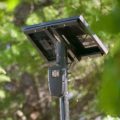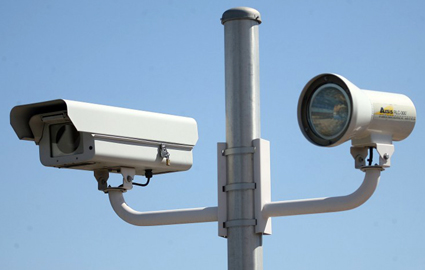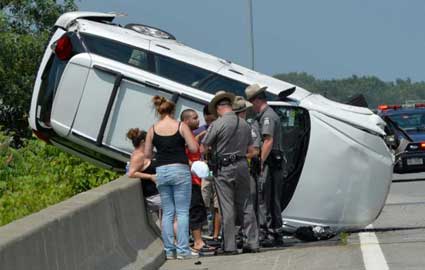Are the police violating your rights?

Are the police violating your rights?
License plate recognition technology was born in the United Kingdom in 1976. In the early stages of scanning license plates, they weren’t very practical and were hardly used. As time went on, their evolution opened doors that only technology can. The most common uses are for toll roads and for police to check drivers for auto insurance. This generation of license plate readers is unique in that we are encountering an automatic surveillance potential.
As with all rapid advancement in technology, we as a society are confronted with the moral dilemma of how far we are permitted to take things. The sword is often double-edged in cases of mass surveillance and can get politically heated as well as divisive. In this particular case of Automatic License Plate Readers, or ALPR’s, known also as an AVI (Automatic Vehicle Identification) we find a textbook case of safety versus liberty.
The Home Office Police Standards Unit and the Association of Chief Police Officers were testing these technologies as early as 2002. By September of 2007, 48% of the largest law enforcement agencies were implementing the use of automatic license place reading technology. A 2012 study reported that stolen vehicles account 88% of the used data. Wanted persons had a 60% alert rate and AMBER alerts had an alert rate of 45%.
With overwhelmingly positive law enforcement statistics, it’s hard to see the downside. Lives are being saved and criminals are being caught using a technology that saves tax payer’s money.
Following democratic debates and speeches in 2009, it became known the ALPR’s were recording and storing the data of those leaving the events. The events caused a debate that sprung up in reference to the ALPR’s that not only brought public awareness but also made it seem like technology had evolved while the public wasn’t looking. They felt watched.
It was reported that the police department was obtaining license plate numbers of those exiting campaign events held by Barak Obama and Sarah Paling in Leesburg, Virginia. This was also the case for Obama’s inauguration in January of 2009. The release of these reports cause quite a stir and was brought before the Virginia Attorney General in February of 2015.
Virginia Attorney General Ken Cuccinelli ruled that the information ceased to be stored and that parameters be set for collection of the data. This meant that unless there is a valid reason, the otherwise automatic LPR’s are turned off and the information is required to be erased after 24 hours, rather than the previous standard of 90 days.
This was a step in the direction of liberty and privacy but, as many law enforcement communities would argue, a step away from safety. The argument for the automatic license plate readers isn’t hard to find. Law enforcement agencies are eager to catch criminals and save lives. National security can have a safer landscape with the ability to be more proactive.

There will always be a mass surveillance debate, especially as we move into a future that makes it more and more possible. While we are cautioned that our privacy and freedom should come first, it is hard to deny the evidence that it can be an easy way to increase our safety as a society.
Reasons to take Comedy Driving Defensive Driving
- Flexible Schedule
- Email Delivery Available
- Unlimited Log-ins
- State Approved
- No Final Exam
- Animated Course
- Free Audio and Video
- Comedic Course
- Live Phone Support
- No Hidden Fee’s








